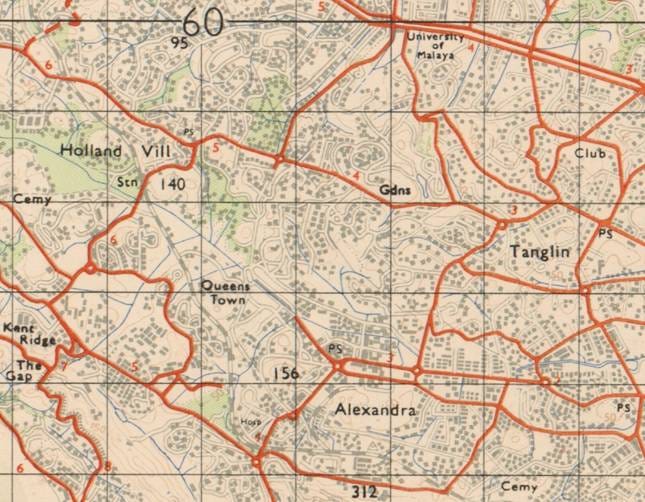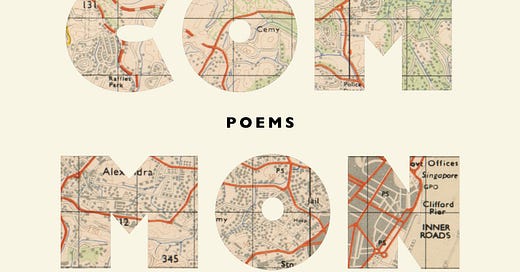Commonwealth: Theophilus Kwek
Theophilus Kwek on his new collection and The National Archives of Singapore
Some days, I escape the infinite scroll of the present by flicking through photographs from the past.
The National Archives of Singapore has an excellent collection online that anyone can peruse for free. Haunted seniors seeking old addresses and lost loves, schoolkids on a deadline. I thumb the screen with only a fraction of their urgency, searching not for the jolt of recognition but for whatever defies the orderliness of history, tempts the eye to linger. Usually it’s something inexplicable (at least to me) and out of place, like a cushion askew in a glossy catalogue. Whatever makes the present seem less pre-ordained.
It is one of these photographs that leads me to the title of this collection, as well as its cover. The label reads 1964 – a year before my mother is born, Singapore on the cusp of independence – and the image itself shows the opening of a road, Commonwealth Avenue, that paves the way to the city’s newest housing and industrial estates.
Development is in the air and a nation, too, is being rebuilt. The guest of honour, the Minister for Labour, is one of many detained for sedition (and whose leftist newspaper was banned) under the departing British administration. Here he sits on a makeshift stage, barely visible, as a colleague starts the proceedings. Far from the bureaucratic trappings of a new thoroughfare, what draws the eye is the incongruous presence of a young girl in a white frock, standing among the men in their short sleeves. Her back is turned but her presence on the freshly-cut tarmac is magnetic.
Who is she and what is she thinking, as she watches her neighbourhood transform with the slicing of a ribbon? My puzzlement becomes a poem, published with great joy in bath magg. In the process, I look up a map from 1963 that reveals where the road would have been cut, nudging its way edgewise along a tributary of the Singapore River. Compared to earlier maps I’ve seen, this one is precise in its detail: on either side of Commonwealth Avenue, densely clustered buildings stand out against the beige paper.

In a couple of keystrokes I pull up the map’s provenance, which induces an involuntary shudder. Published by the Directorate of Military Survey, part of the British War Office, it appears to show me the island as a passing RAF squadron would have seen it, relief and vegetation carefully marked alongside its urban features. Beyond the map, a Cold War gathers pace; empire, though held at bay, prepares to take on other forms.
Each of these – the girl, her neighbours, the Minister, the postwar Commonwealth – casts a spectral shadow on these pages. Recurring far more often are characters from my own timeline: my mother, grandmother and others close to me whose stories unfold against the backdrop of Singapore’s eponymous district of ‘Commonwealth’. Readers will also meet such unlikely figures as Hungarian-born wrestler Emile Czaja (aka ‘King Kong’), and Methodist pastor T.C. Nga who loses his shoe in the building site of Faith Methodist Church. But the real protagonists of the book, in many ways, are the ones whose faces we can’t quite see, and yet exert their pull over all these years, refusing to be erased from history’s negatives.
There they are, tricky and defiant, under the pale skin of the map; they are our inheritance and our commonwealth.
This week's article is by Theophilus Kwek, author of Commonwealth, which is published this month! Remember to use the code MAYBOOKS for 20% off and free UK P&P.
Please join us to celebrate the launch of Commonwealth! Over the coming months, Theophilus will be reading at events in Oxford, London, Cambridge, Edinburgh, and Singapore - find out more details on our website.





